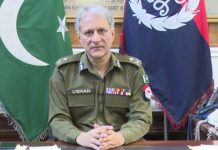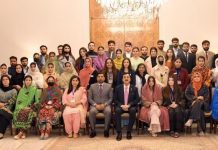DNA
Islamabad Oct – An online research seminar titled, “The Security-Development Nexus in Post-Conflict North Waziristan” was jointly organised by the NUST Centre for International Peace & Stability (CIPS) and the Hanns Seidel Foundation Pakistan (HSF) here the other day.
The principal aim of the seminar was to showcase findings of the research project titled, “Unravelling the Contextual Realities in Post-Conflict North Waziristan: Understanding Displacement, Resettlement and Post- Conflict Development.” The guest speakers at the occasion were Lt Gen Muhammad Masood Aslam, (Retd) and Dr Ingrid Nyborg, Associate Professor at the Norwegian University of Life Sciences.
Commenting on the State strategies in post-conflict contexts, the former remarked that “a holistic and people-centric strategy should be implemented and the war zones be converted into peace zones, which means that the writ of the state is not enforced through the military, but rather through the civilian law enforcement agencies.”
Echoing similar concerns, Dr Nyborg laid emphasis on the needs of the people in post-conflict environments and contended that “attention to human security was crucial to merge the security and development agendas.” These broader insights were sculpted to elucidate the research findings on the case of North Waziristan, presented by the research lead, Dr Muhammad Makki, the Head of Department (Research) at CIPS, who stressed the need for understanding thespecificities of contexts in post-conflict reconstruction, so that the policy and practice could be coalesced for sustainable development and durable peace.
The interactive session of the seminar included PhD and Master’s students of CIPS, and also brought together an audience including policymakers and academics. The seminar underscored the efforts of the Government of Pakistan for post-conflict development in North Waziristan.

















